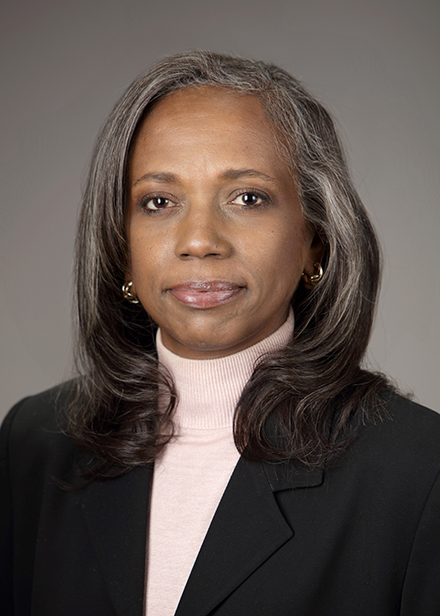Anna Ramsey-Ewing

Power Words
Where were you born?
Charleston, South Carolina
What school did you attend?
B.S. Microbiology, University of Miami College of Arts and Sciences, Coral Gables, FL; Ph.D. Biomedical Sciences, University of Florida College of Medicine, Gainesville, FL
What IC do you work for?
The National Center for Advancing Translational Sciences (NCATS)
How many years have you worked at the NIH?
20 years
What gained you interest in the NIH?
I spent the summer of my first year in graduate school on a rotation at the NIH in the Laboratory of Immunology, NIAID, where I had an experience that was exceptional for a number of reasons; productivity, mentoring, and self-identity are among the most important. As a result, when I was identifying potential institutions for post-doctoral training, NIH was among my top choices.
What kind of work do you do at the NIH?
I am currently Director of the Office of Grants Management and Scientific Review at the National Center for Advancing Translational Sciences (NCATS). In this capacity, I lead the group responsible for all issues related to policy and procedures for extramural activities. Additionally, I oversee and direct scientific review and grants management activities at NCATS and oversee management and operations of the NCATS Advisory Council and Cures Acceleration Network Review Board.
What message would you like to send to young Blacks who are considering going to college?
Decide. Decide early. Declare. Declare to yourself and everybody else. Hire yourself to be the mistress or master of your own destiny and then do what needs to be done. These few words reflect a mindset that can enable you to overcome what may sometimes seem to be insurmountable odds!
Why did you choose to pursue a career in research?
I've always been exceedingly interested in the “why” of the world, so my childhood curiosity about microbes (“animalcules”) and a desire to become an “expert” evolved into a passion that drove me to biomedical research as a means of both satisfying myself and making a positive, lasting contribution to all of us.
What would you say is your most significant contribution to science or medicine?
While studying the lifecycle of poxviruses with respect to why viruses grow well in some cells and poorly, or not at all, in others, I engineered a version of a virus that could overcome a molecular barrier that prevented it from replicating in one of a few cell types that had been approved for preparation of products for use in humans. Although expression of proteins in this cell type for this purpose was not the central focus of my work, the outcome of this line of inquiry proved to be useful.
Regarding your career here at NIH, what accomplishment are you the most proud of?
Development of a comprehensive suite of policies and procedures to optimize solicitation, evaluation, award and management of cooperative agreements to support planning and implementation of investigator-initiated clinical trials as a result of sustained effort in a number of roles in extramural research policy and administration.




